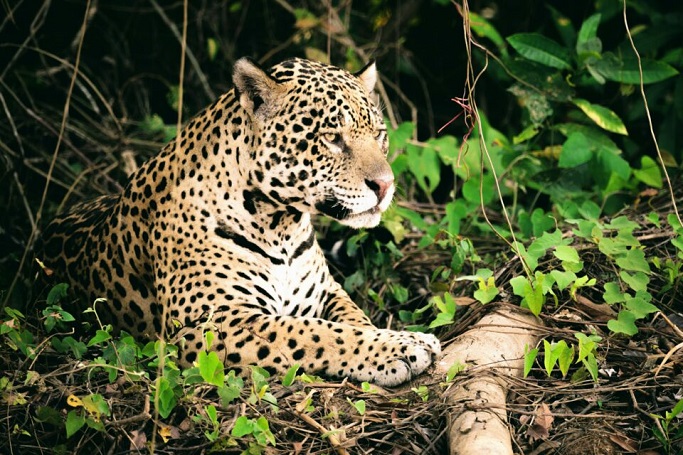11 Dec 2024

Tired Earth
By The Editorial Board

From jaguars and ocelots to anteaters and capybara, most land-based mammals living in the Brazilian Amazon are threatened by climate change and the projected savannization of the region. That's according to a study published in the journal Animal Conservation by the University of California, Davis.
The study found that even animals that use both forest and savanna habitats, such as pumas and giant armadillos, are vulnerable to such changes. It also illustrates how species and lands protected through local conservation efforts are not immune to global climate change.
"We're losing Amazon forest as we speak," said lead author Daniel Rocha, who conducted the research as a doctoral student in the UC Davis Department of Wildlife, Fish and Conservation Biology. "The Amazon's biodiversity is very susceptible to climate change effects. It's not just local; it's a global phenomenon. We cannot stop this just by law enforcement, for example. These species are more susceptible than we realized, and even protected areas can't protect them as much as we thought."
What is 'savannization?'
Pristine savanna is a unique biome that supports a diverse array of life. But "savannization" here refers to when lush rainforest gives way to a drier, open landscape that resembles savanna but is actually degraded forest. Local deforestation and global climate changes in temperature and precipitation favor this conversion along the southern and eastern edges of the Brazilian Amazon.
Arboreal species like monkeys clearly will be impacted by such changes. But the study's authors wanted to better understand how land-based mammals are expected to fare -- especially those who use both forest and savanna habitats when they have access to both.
Caught on camera
For the study, the researchers conducted camera trap surveys of land-based mammals in four protected areas of the southern Brazilian Amazon, which is a mixture of rainforest and natural Cerrado, or savanna. Using statistical models, they quantified how 31 species were affected by savanna habitat. They then looked for differences among species known to use mostly rainforest, savanna, or both habitats.
The results showed that only a few species preferred savanna habitat. Rocha notes that the models were based on pristine -- not degraded -- savanna, so the negative effects of savannization among animals will likely be even stronger.
Riparian forests, which line the wet edges of rivers and streams, helped buffer the effects of savannization to some extent.
Winners and losers
"Unfortunately, there are more losers than winners," said Rocha, who is currently an assistant professor at Southern Nazarene University in Oklahoma. "Most Amazon species, when they can choose between good forests and good savanna, they choose the forest. That's true even for species considered 'generalists,' which use both habitats. As we lose forests, they suffer, too."
The results indicate that if climate-driven savannization causes species to lose access to their preferred habitat, it will reduce the ability of even protected areas to safeguard wildlife. The authors say that should be considered when assessing the potential climate-change effects on these species.
The study is co-authored by Rahel Sollmann, Rocha's former advisor at UC Davis who is now at the Leibniz Institute for Zoo and Wildlife Research in Berlin, Germany.
The study was funded by CAPES, the National Geographic Society, Horodas Family Foundation for Conservation Research, The Explorers Club, Alongside Wildlife Foundation, and the Hellman Foundation. This study received logistical support from ICMBio.
Source : sciencedaily.com
Comment